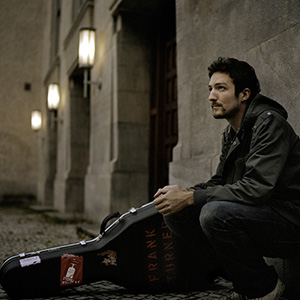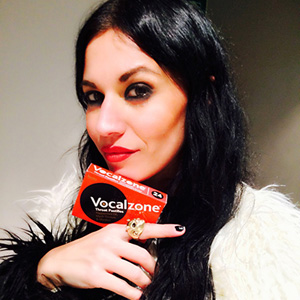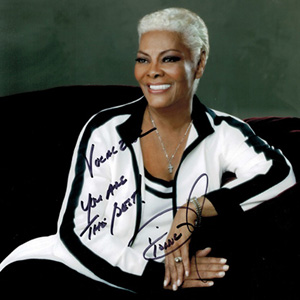Even if you have been performing for a number of years, stepping in front of an audience is always special. Understanding how your voice works will help you to give the best possible vocal performance.
How does the voice work?
Did you know that it takes the use of over 100 muscles to sing or even speak a single phrase? Add to that the fact that your vocal folds will vibrate anywhere between 100 to 1000 times per second when performing, and you quickly begin to build up a picture of the considerable strain your voice is under.
Your voice works from a combination of three primary outlets:
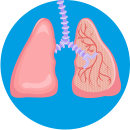
The Power Source
(the lungs)
The power in your voice comes from the air that you inhale and exhale, which causes an air stream in the trachea. The stronger this airstream is, the stronger your voice will be.
It’s important to have clear passageways when performing, as it’s this intake or airflow which helps power the vocal folds. That is why many people find it difficult to perform when they have any type of blockage, such as a cold or cough.

The Vibratory Source
(the vocal folds)
Your vocal folds are composed of twin foldings of mucous membrane stretched across the larynx. Whilst in use, they can vibrate anything between 100 to 1000 times per second, to help create the sound you are trying to achieve.
As a performer, you’re creating a variety of different sounds and tones, so your vocal folds are working hard to create those different tones. Vocal folds differ from person to person, and generally speaking, men have thicker vocal folds compared to women.
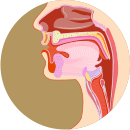
The Amplification Source
(mouth, throat and nose)
Without an amplification source, your voice would sound like a humming sound. It’s your mouth, throat and nose which create your voice. These body parts act as resonators; essentially giving you the voice people hear when you perform.
Like fingerprints, every voice is unique; and whilst some can closely mimic another’s voice it’s impossible to replicate it identically.
Symptoms of voice misuse / overuse
With so many body parts working together to power your voice, prolonged use can result in vocal strain. This soreness and discomfort can be quite common in performance due to a number of reasons, most notably, poor vocal technique and excessive use of the voice when performing. Whilst your voice can be trained to handle prolonged work, the symptoms of hoarseness and soreness in the throat can affect any performer. External factors such as the environment you are performing in, and whether you have underlying cold, cough and flu symptoms can also cause vocal discomfort.
The strain and irritation cause can drastically limit a performer’s vocal range. The technical term for voice strain is ‘Muscle Tension Dysphonia’.
The most notable symptoms to look out for are:
- Sore throat
- Gradual voice loss (if sudden, seek immediate medical advice as you may have a vocal cord hemorrhage)
- Hoarse voice
- Tickly cough
- Difficulty projecting
- Deepening of the voice
Generally, you know you have strained your voice if you are feeling any pain or discomfort during or immediately after performance, but this strain disappears once you have rested your voice.
There are a few considerations:
- If you are regularly experiencing these symptoms after a performance, go and see a doctor as continued strain can lead to injury.
- If the discomfort remains after rest, you may have an underlying voice problem/condition and should go and visit your doctor as soon as possible.
- If you’re ever unsure, go and see a doctor – It’s better to be safe than sorry!
Precautions and Recovery
There are a number of precautions you can take to help look after your voice, as well as a number of actions you can take should you begin to experience vocal strain.
Here are some tips:

Keep hydrated
Water keeps the vocal folds lubricated, preventing the dryness and friction which can result in vocal discomfort, hoarseness and sore throats.

Warm up your voice
You’re about to perform, so warming up your voice is a given. It’s like exercise, if you step into a gym and haven’t warmed up beforehand, the likelihood is that soon after you will feel discomfort in your joints because you’ve worked your muscles much harder than you typically would.

Wrap up warm
Try and keep wrapped up if it’s cold. Cold air not only makes your more vulnerable to a cold or flu, but the cold air also dries up your throat. There’s a reason why so many performers are photographed in scarves during the winter!

Rest your voice
Don’t use your voice unnecessarily, you can strain your voice by talking, shouting and even whispering! If the strain already exists, the best course of action is a combination of rest, hydration and Vocalzone which will help soothe the discomfort.

Avoid Smoking
For more information on the effects of smoking on your voice, check out the Smokers section on our website.

Avoid caffeine and alcohol
They both taste great, but unfortunately dehydrate you, so just give that cup of coffee a second thought if you’re about to go on stage. If you’re having an after show drink, try and balance it out with some water to recover some of the water your body has lost from drinking the alcohol.

Don’t use your voice when you’re unwell
Granted, sometimes not using your voice is pretty much impossible if you’re about to perform, but at the very least make sure to avoid using your voice unless absolutely necessary when you are sick.

Practice good posture & breathing techniques
It’s essential that you maintain a good posture and breathing technique once performing. If you don’t, you’re potentially making your body work even harder to use your voice, hence increasing the risk of vocal strain.

Use Vocalzone as part of a combination of the above
Find out more about the benefits of using Vocalzone below.
We have a number of hints, tips and vocal exercises available on the voice care section over on The Record Blog.
How Vocalzone supports the voice
Vocalzone can benefit a performer before, after and even during a performance. To understand how it works, it’s important to first understand the benefits of some of the key ingredients of the pastille.
Myrrh Tincture
The myrrh in Vocalzone acts as an anti-inflammatory on swollen capillaries. As an astringent, it also helps regulate mucous retention. It also stimulates blood circulation, helping to fight infection and speed healing when you have a cold.
Known benefits:
- Anti-inflammatory
- Antioxidant
- Antiseptic
- Antimicrobial
Peppermint Oil
Peppermint Oil acts as an aromatic calmative within Vocalzone Throat Pastilles. Inhaling this essential oil can also help to unclog blocked sinuses and clear the airways.
Known benefits:
- Natural energizer
- Clears blocked sinuses
- Natural coolant
- Skin relaxant
Menthol
The menthol in Vocalzone helps to soothe and relieve throat irritation. This is achieved by the natural cooling properties of this essential oil.
Known benefits:
- Analgesic
- Antiseptic
- Antispasmodic
- Decongestant
When Vocalzone Can Help
You can use Vocalzone before, during and after a performance.

Before Performance
Vocalzone can be a great aid to take before a performance. The peppermint oil and menthol work together as a decongestant to help clear any blocked sinuses and nasal cavities, which will allow you to breathe freely and get the most out of your voice. It’s essential to drink plenty of water in conjunction with taking Vocalzone before a performance to remain as hydrated as possible.

During Performance
If you are in a high intensity performance, you can begin to feel vocal strain whilst still on stage. Many artists have used Vocalzone during their performance, as a way of actively regulating mucous retention, and soothing any discomfort without masking any underlying problems, or numbing the vocal folds.

After Performance
Vocalzone is used by many after a performance to aid in the recovery of the voice. With myrrh being an astringent, it will help to reduce the inflammation of swollen capillaries, and it also stimulates the mucous membranes which allows for secretion and regulation of the mucous after prolonged use of the voice.
Don’t forget, Vocalzone should always be used in complement with your voice care routine, and should never replace it!

What People Say About Vocalzone
Browse our blog for music and entertainment news, exclusive Live Sessions and Vocal Care tips & exercises from the V-Team.


